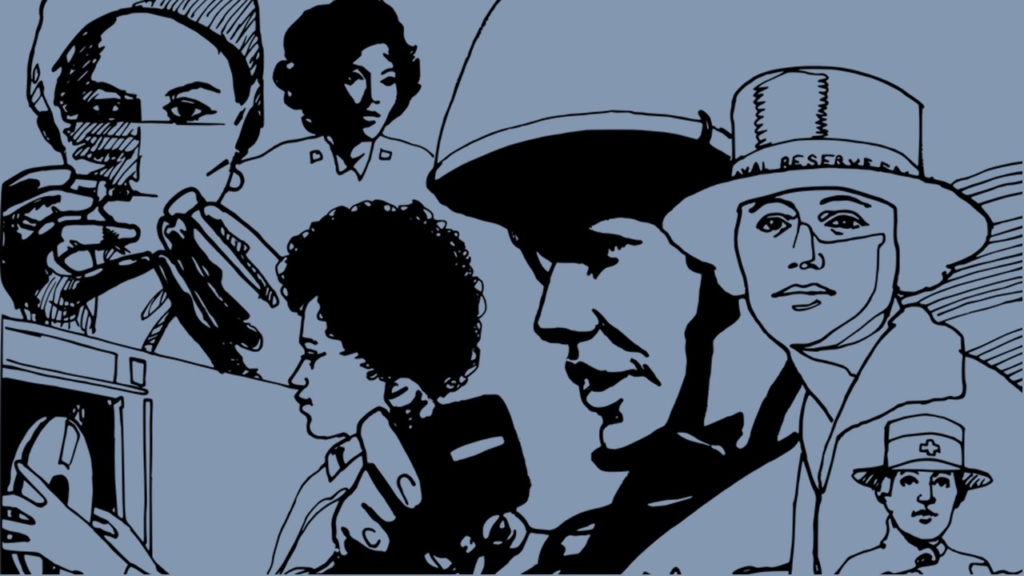You, Volume 3, No. 19, The News International. 1993
 That our textbooks present only stereotypes where gender roles are concerned is an obvious fact. The sort of actions that male and female characters perform are always meant to assert the social superiority of one sex over the other e.g. fathers or brothers are always busy reading or doing wonderful things while the mothers or sisters only perform the household work. There are no models of female pilots, engineers, doctors, artists, social workers, etc. The sort of things that men do in these textbooks involve knowledge or specific skills whereas women are presented as unskilled, and evidence of their knowledge is very rarely given. Perhaps one of the worst examples of this appears in the Middle Stage English III (for Class VIII) published by Sindh Textbook Board, Jamshoro. The lesson ‘Some Suitable Careers’, which is probably meant as career counseling, consists of male characters only. To reinforce the message for the students, there is another lesson ‘Dignity of Labor’ which suggests, through examples from history, that women should only work in their homes. There is no mention of those wives of the Prophet (PBUH) who used to earn their livelihood with their own hands; neither is it mentioned anywhere that Bibi Ayesha was a jurist. The exercise at the end of the lesson asks the students whether it is “True” or “False” that a woman should work in the house. Only a negative answer [fusion_builder_container hundred_percent=”yes” overflow=”visible”][fusion_builder_row][fusion_builder_column type=”1_1″ background_position=”left top” background_color=”” border_size=”” border_color=”” border_style=”solid” spacing=”yes” background_image=”” background_repeat=”no-repeat” padding=”” margin_top=”0px” margin_bottom=”0px” class=”” id=”” animation_type=”” animation_speed=”0.3″ animation_direction=”left” hide_on_mobile=”no” center_content=”no” min_height=”none”][i.e. ‘True’] will be supported by the text!
That our textbooks present only stereotypes where gender roles are concerned is an obvious fact. The sort of actions that male and female characters perform are always meant to assert the social superiority of one sex over the other e.g. fathers or brothers are always busy reading or doing wonderful things while the mothers or sisters only perform the household work. There are no models of female pilots, engineers, doctors, artists, social workers, etc. The sort of things that men do in these textbooks involve knowledge or specific skills whereas women are presented as unskilled, and evidence of their knowledge is very rarely given. Perhaps one of the worst examples of this appears in the Middle Stage English III (for Class VIII) published by Sindh Textbook Board, Jamshoro. The lesson ‘Some Suitable Careers’, which is probably meant as career counseling, consists of male characters only. To reinforce the message for the students, there is another lesson ‘Dignity of Labor’ which suggests, through examples from history, that women should only work in their homes. There is no mention of those wives of the Prophet (PBUH) who used to earn their livelihood with their own hands; neither is it mentioned anywhere that Bibi Ayesha was a jurist. The exercise at the end of the lesson asks the students whether it is “True” or “False” that a woman should work in the house. Only a negative answer [fusion_builder_container hundred_percent=”yes” overflow=”visible”][fusion_builder_row][fusion_builder_column type=”1_1″ background_position=”left top” background_color=”” border_size=”” border_color=”” border_style=”solid” spacing=”yes” background_image=”” background_repeat=”no-repeat” padding=”” margin_top=”0px” margin_bottom=”0px” class=”” id=”” animation_type=”” animation_speed=”0.3″ animation_direction=”left” hide_on_mobile=”no” center_content=”no” min_height=”none”][i.e. ‘True’] will be supported by the text!
As educated members of society, it is our responsibility to dispel the undesirable effects from the minds of the younger generation. Let us analyze the gender-biased lessons.
- Take any gender-based story and ask the children to list all the characters from it. With the feedback that we get we can make a switch, substituting female characters for the males. The children can decide the names of these new characters.
- Elicit eighteen feminine names, writing one in front of each character.
- The children can then insert the new characters by crossing out the masculine names and writing the new names over them.
- At this point they may have to make some grammatical changes in the text to make it consistent with the new gender specification.
- When this lesson is read again, those portions which appear as culturally inappropriate – eg, careers unsuitable for girls should be underlined. New feedback can be invited, and discussion and argument can be held on whether the children feel that certain portions of the lesson have become culturally inappropriate, e.g. “Are you sure women cannot really do this?” or “Are the gender roles in the society consistent with the basic principles of justice?” etc. (You will be amazed by some of the thoughts children will come up with, we promise!)
If this is being done in a classroom, it might be useful at this point to get the pupils to write the professions of their parents and/or the profession they themselves want to adopt on separate slips of paper – no need to write the person’s name.
These slips, up on the class notice board, will present a wonderful career bank for the pupils to refer to. (Be sure to encourage them to use the more realistic modern term “homemaker” instead of the gender-biased “housewife”.)
Another interesting approach might be to ask them which other professions they can imagine for boys and girls.
But before doing this, a few things have to be cleared out in our own minds if we really wish to encourage children to discuss these – or other gender issues among themselves or with us.
To start with, there is no profession or career which may be considered as absolutely inappropriate for women now. Gender roles are changing the world over and it is becoming evident that our assumptions about what a woman or a man could or couldn’t (or should or shouldn’t) do were based on cultural prejudices and not on any biological realities.
In our own country, women have long been dominating the vocation of teaching not only in girls schools but in many boys schools as well. They are also becoming more and more active as writers, doctors, engineers, scientists, chemists, designers, etc. Quite a few women have been music directors also and among themselves, they represent quite diverse life styles.
Women in rural areas do most of the farming but it is an irony that only men are considered for technical education in the field. A whole lot of problems of living will be solved in our rural areas if women are also promised to be made “better farmers than their ancestors”, just like the boy in ‘Some Suitable Careers’ in Middle Stage English III.
Some of the professions mentioned for boys in the textbooks might sound odd for girls such as being a fighter pilot, a sailor or a soldier; also being a plain shopkeeper. But many countries in the world have now begun to see women in all these roles, not just in Europe and America but also in Asia: one of our neighbors has recently started a women’s corps in its army. College girls in our own country are given the N.C.C. training, which is an appreciation of the fact that women can perform military action. A valuable up-to-date resource on the topic of careers in general would be Studs Terkel: Working.
Let’s not forget that it is our responsibility to prepare the next generation for a world which is already changing more rapidly than many of us think. One way we can prepare them for living in such a world is through the awareness of the happenings the world over, and the impossibilities they suggest.
 This articles is part of the series “Women Studies”: Let’s say no to a peurile feminism | Women and cinema in Pakistan | Women as prophets in the Quran | A woman’s Islam? | Gender roles in education | Women’s right to divorce in Islam | Liberty, equality, fraternity | In religion’s wake | ‘Men are from Mars, women are from Venus … no more’ | ‘History, she wrote’ | ‘Debunking myths‘ | Women in the Quran | Portrayal of women in the stories of Sadat Hasan Manto
This articles is part of the series “Women Studies”: Let’s say no to a peurile feminism | Women and cinema in Pakistan | Women as prophets in the Quran | A woman’s Islam? | Gender roles in education | Women’s right to divorce in Islam | Liberty, equality, fraternity | In religion’s wake | ‘Men are from Mars, women are from Venus … no more’ | ‘History, she wrote’ | ‘Debunking myths‘ | Women in the Quran | Portrayal of women in the stories of Sadat Hasan Manto
[/fusion_builder_column][/fusion_builder_row][/fusion_builder_container]
